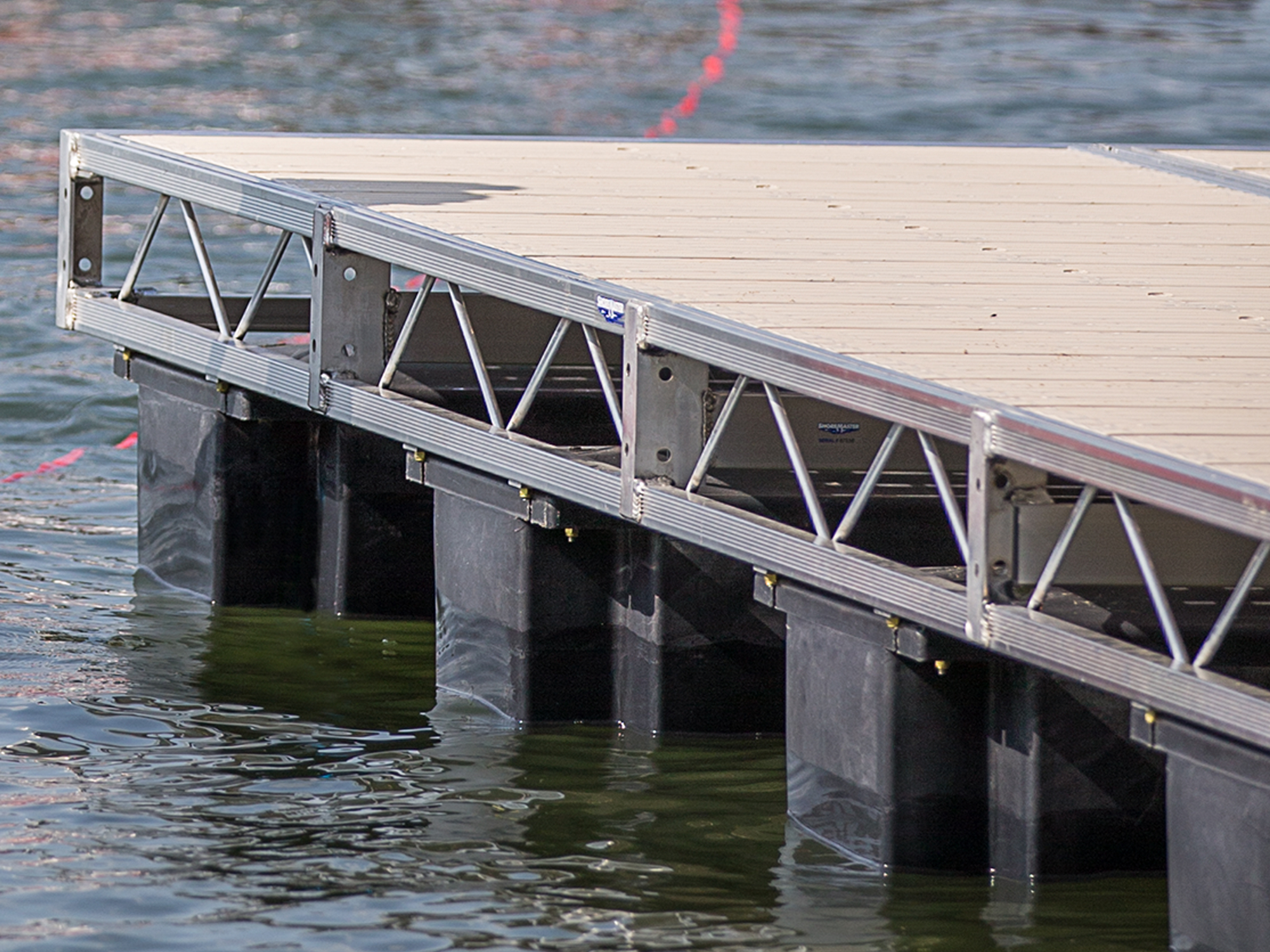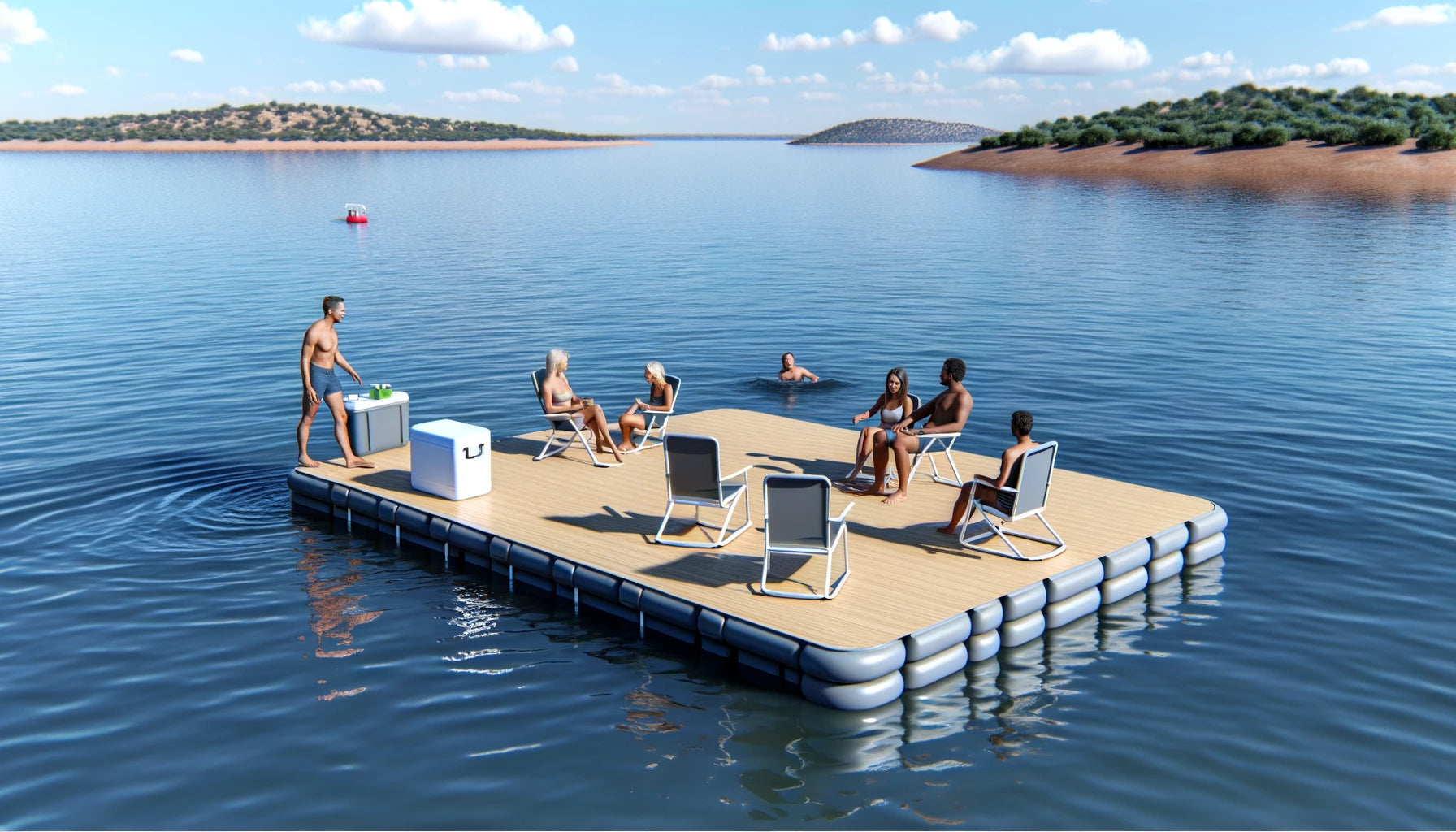Floating Docks: The Suitable Selection for Versatile Water Access
Floating docks present a compelling option for a range of water access needs, providing versatility that goes beyond traditional mooring options. The modular nature of floating docks helps with modification, catering to specific requirements.
Advantages of Floating Docks
Floating docks deal numerous advantages that enhance water accessibility for numerous applications. Their ability to rise and fall with altering water levels makes them specifically helpful in environments with varying tides or seasonal variants. This adaptability makes certain that vessels can quickly moor without worry for the water's depth, providing a dependable system for leisure, business, and industrial usages.
Furthermore, floating docks are frequently built from resilient materials that withstand deterioration, making them suitable for long-lasting usage in aquatic settings. Their installation is normally less invasive than conventional set docks, reducing the ecological effect and promoting quicker deployment (floating dock services). This adaptability enables much easier moving or reconfiguration according to user requirements or environmental modifications
Safety and security is an additional key benefit; floating docks can provide stable access for individuals disembarking or boarding from boats and decrease the danger of accidents connected with unstable surfaces. Additionally, they can be created to accommodate a variety of accessories, such as cleats and fenders, enhancing capability. In general, floating docks represent an effective solution for boosting water accessibility across varied markets while promoting safety and ecological sustainability.

Kinds of Floating Docks
Numerous sorts of floating docks accommodate different requirements and settings, each developed with details functions to maximize performance. One of the most common types consist of modular docks, which consist of interlacing sections that enable very easy personalization and development. These docks are optimal for entertainment use, as they can be tailored to fit numerous boat sizes and water problems.
An additional popular choice is the fixed floating dock, which remains anchored in area yet floats with changing water levels. dock company. This type is specifically suited for areas with very little tidal changes, giving secure access for angling or swimming. Furthermore, there are drive-on docks, which include a sloped layout that allows boats to easily drive on and off, making them suitable for personal watercraft and smaller vessels
For industrial applications, durable floating docks are offered, built from strengthened products to hold up against significant loads and harsh marine environments. Lastly, environmentally friendly floating docks use sustainable materials and designs to decrease environmental influence, typically incorporating features like vegetation to sustain neighborhood wild animals. Comprehending the various sorts of floating docks guarantees that users can pick one of the most proper option for their details demands.
Installation Refine Review
An effective installation of floating docks requires mindful planning and interest to information to make sure optimal efficiency and safety and security. The preliminary step entails evaluating the site problems, including water depth, current, and potential obstacles. This evaluation informs the option of the suitable dock products and layout customized to the certain setting.
Next, acquiring needed permits is essential, as many jurisdictions have policies concerning construction on water bodies. The installment can continue when approvals are secured. Begin by preparing the structure, which may entail anchoring systems or pilings tailored to the dock type and regional problems.
Following the structure setup, construct the dock sections according to maker requirements. Guarantee that all parts are firmly fastened and lined up to pop over to this site hold up against environmental anxieties. Placement the dock in the designated area, ensuring it is degree and secure.

Upkeep Tips and Ideal Practices
After the installment procedure is full, recurring upkeep plays an essential duty in making sure the durability and performance of floating docks. Normal evaluations must be carried out to identify any type of indicators of wear and tear, damages, or wear - floating dock company. Check for any loosened fittings, cracks, or separation in the dock sections, as these can endanger structural integrity
Cleansing the dock is important to eliminate debris, algae, and various other build-up that can impact its appearance and safety and security. Use a mild pressure clean regularly to preserve tidiness without creating damage to the surface area. Furthermore, applying a protective sealer every few years can aid boost long life and resist ecological wear.
Take notice of the mooring lines and supports, ensuring they are safe and totally free from corrosion. Change any kind of degraded parts promptly to prevent hazards. Seasonal modifications might likewise be required; during extreme weather, strengthening the dock or rearranging can prevent damage.
Applications for Floating Docks
Floating docks serve a plethora of applications, satisfying both recreational and industrial needs. In leisure setups, they give seamless access to rivers for activities such as boating, fishing, and swimming. Their flexible nature permits for installation in varying water levels, making sure secure and steady access despite tidal changes.
Commercially, floating docks are indispensable for marinas and waterfront companies. They assist find more info in the docking of vessels, making it possible for reliable unloading and loading of goods. Their modular style permits easy expansion or reconfiguration to accommodate changing company demands, making them optimal for boat leasings, tour procedures, or angling charters.
Additionally, floating docks are made use of in environmental applications such as marine study and environment remediation. They can serve as platforms for scientific research studies, monitoring water quality, or performing wild animals studies without disturbing sensitive communities.
In industrial contexts, floating docks are utilized in building projects, providing accessibility to hard-to-reach locations for devices and personnel. Their versatility, sturdiness, and very little effect on the environment make them an optimal selection for a large range of applications, enhancing both functionality and ease of access in various water-based settings.
Final Thought
In verdict, floating docks represent an ideal option for varied water access needs, owing to their versatility, durability, and modular style. Floating docks offer as a beneficial asset for leisure, get more industrial, and ecological tasks, ensuring reputable accessibility to waterways and promoting sustainable methods in water atmospheres.
Floating docks existing an engaging service for a range of water accessibility requires, supplying convenience that goes beyond traditional mooring options.Floating docks offer many benefits that improve water gain access to for different applications. Generally, floating docks represent a reliable remedy for boosting water accessibility throughout varied fields while advertising safety and security and ecological sustainability.
An additional prominent option is the stationary floating dock, which remains secured in place yet floats with altering water levels.In conclusion, floating docks represent an optimal solution for varied water accessibility needs, owing to their flexibility, sturdiness, and modular layout.